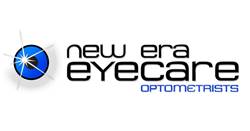Results of a recent study published in JAMA Network Open (July 2021) suggest that significant cognitive decline can result from untreated vision problems in the elderly population.
For the Baltimore Longitudinal Study of Aging, researchers gathered data on 1,202 men and women between the ages of 60 and 94. They administered vision and cognitive tests every one to four years between 2003 and 2019 and discovered that those who scored lowest on initial vision tests were more likely to show a cognitive decline over the course of the study. This decline was observed to be quite broad, including memory, language, attention and the ability to identify and find objects.
Good Eye Care Can Help Ward Off Cognitive Decline
Fortunately, this decline isn’t inevitable. A separate study published in JAMA Ophthalmology (September 2018) suggests that the risk of cognitive decline decreases significantly in people who are able to maintain good eye health and clear vision.
One of the doctors in the study, Dr. Bonnielin K. Swenor, observed that people with vision loss will often withdraw from physical and social activity, further increasing their risk of cognitive decline. On the other hand, maintaining good eye health will not only reduce the risk of cognitive decline in and of itself, but will encourage activities and hobbies that will further reduce risk.
Maintaining your long-term eye health and clear vision requires vigilance, but the benefits will extend well beyond your eyes as they will also enhance the quality of life and maintain your cognitive skills. Speak to your eye doctor today about regular eye exams for common eye diseases and conditions. Early detection and treatment of vision problems will contribute to your long-term physical and cognitive health.
At New Era Eyecare, we put your family's needs first. Talk to us about how we can help you maintain healthy vision. Call us today: 703-830-3977 or book an appointment online to see one of our Clifton eye doctors.
Want to Learn More? Read on!
FOLLOW US:
FAQs
How often should I be visiting my eye doctor to maintain good eye health?
Regular eye exams are a key part of maintaining long-term eye health and visual acuity. Early detection and treatment of common eye conditions increases the likelihood that potential eye damage and vision loss can be prevented.
Eye care professionals recommend that adults with healthy eyes and vision see their eye doctor at least once every two years. Those over the age of 60, or who have underlying conditions like diabetes, or who are at risk of developing macular degeneration, cataracts or glaucoma, should see their eye doctor at least once a year, or as directed by their optometrist. In these cases, your eye doctor will evaluate your specific circumstances and recommend how often to undergo a comprehensive eye exam.
Are there specific eye diseases that are linked strongly to cognitive decline?
A study in the British Journal of Ophthalmology suggests links between the development of Alzheimer’s or dementia and a history of age-related macular degeneration, cataracts or diabetes-related eye disease.
Glaucoma was also linked to dementia, though no direct link was found to Alzheimer’s.
Links between cognitive decline and eye health were even stronger where study participants had more than one eye disease, or if they had a history of diabetes, stroke, heart attack or high blood pressure.

